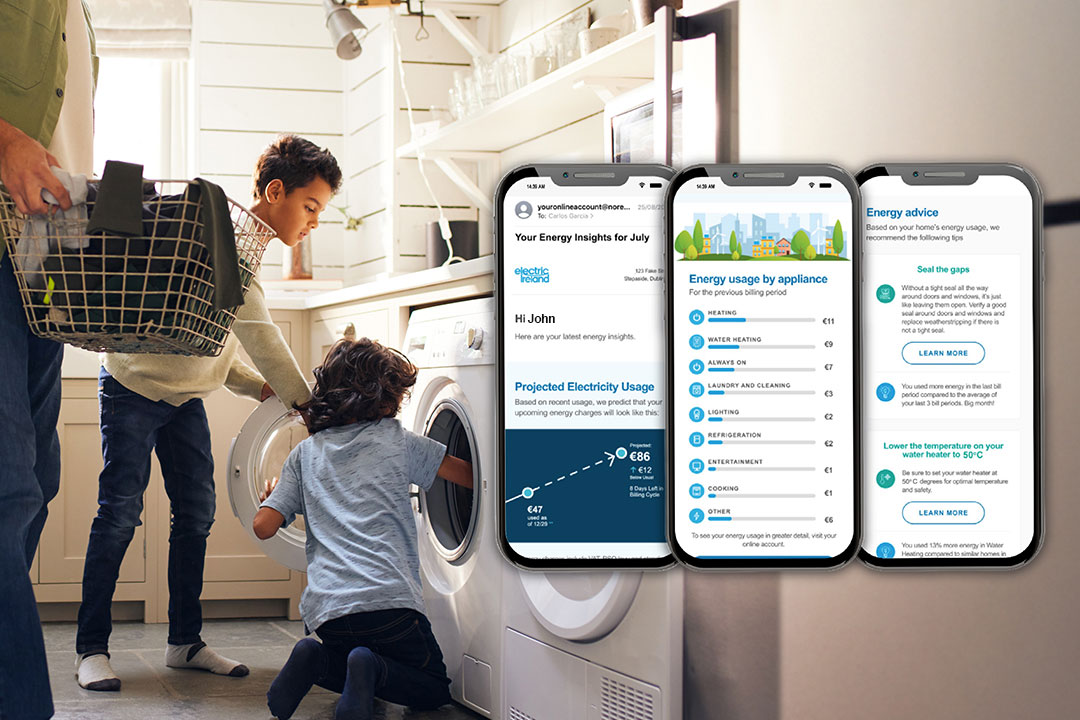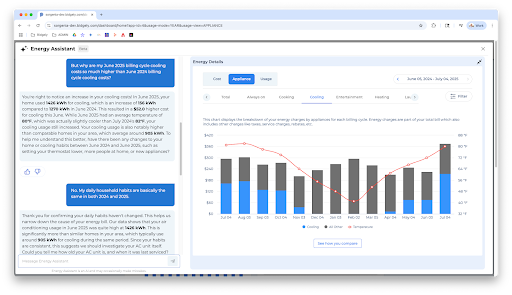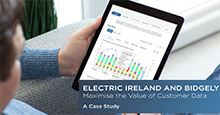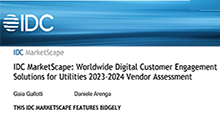Join us for a webinar on Oct 10 to learn how Bidgely is "Empowering Utilities with GenAI:
A Guide to Enhanced CX and Grid Management". Register here.


The European energy retail market is trapped in a vicious cycle. Customers switch providers to gain the smallest cost savings, suppliers slash margins to compete, and genuine differentiation becomes nearly impossible. This commoditisation crisis threatens to trap the entire sector in an unsustainable race to the bottom.
But recent customer research suggests there’s a better path — one that isn’t driven by price alone.
The numbers tell a stark story. In 2024, Eurelectric and Accenture surveyed more than 2,000 energy consumers and 60+ suppliers across 12 European countries. Nearly one in three consumers reported having switched energy suppliers in the past two years — primarily to save money. This represents an eight percentage point increase since 2021, and the trend continues to accelerate.
Looking ahead, one in four consumers plan to switch providers within the next year to save on their energy bills. For energy retailers, this creates a punishing economic reality where customer acquisition costs continue rising whilst customer lifetime value diminishes.
Here’s what’s encouraging: the same Eurelectric study reveals that consumers also increasingly appreciate more than low-cost energy. Nearly half of surveyed consumers are also aware of their energy supplier’s offerings to help manage energy bills, and 28% report feeling more positively in control of their energy usage, thanks in large part to tips and advice from their suppliers.
This data points to a fundamental shift in consumer expectations. Today’s energy customers don’t just want to pay less; they want to understand their consumption, make smarter decisions, and gain genuine control over their energy costs.
The solution? Deliver service that transforms you from a commodity energy provider into a valuable, trusted energy advisor in the eyes of your customers.
Successfully making this transition requires moving far beyond generic energy-saving tips that are often off the mark. True differentiation comes from providing insights and recommendations based on each customer’s specific appliance ownership, consumption patterns and unique household energy profile.
This level of personalisation addresses what Eurelectric identifies as a key market challenge: “Smart energy technologies offer strong potential to help consumers manage costs, yet adoption is limited by lack of interest, awareness, and perceived relevance.”
The key word here is “relevance.” Customers need advice that speaks directly to their unique circumstances.
Two AI capabilities are revolutionising how energy suppliers can deliver personalised advisory services:
Meter Data Disaggregation
AI-powered true disaggregation of smart meter data is able to identify the energy consumption signatures of individual appliances within a given household. This provides consumers and customer service agents with unprecedented visibility into behind-the-meter energy use, across every hour of the day. Instead of receiving a total monthly bill, customers are able to see exactly which appliances and energy habits are primarily responsible for their costs.
Generative AI Interfaces
Natural language AI makes these complex insights accessible to everyday consumers. A customer can simply ask, “Why did my cooling costs increase compared to last year?” and receive a personalised explanation along with specific recommendations for reducing future costs. This conversational approach to energy data democratises access to sophisticated insights whilst reducing the cost-to-serve associated with contacting the call center for the same insights.

When energy suppliers provide genuine value through personalised insights and advice, it improves customer retention. Customers who rely on their supplier’s energy management tools and advice are less likely to switch to obtain marginal savings. The relationship becomes stickier when it is based upon a value proposition of ongoing service and support, not just commodity provision, breaking the cycle of price-only-based decision making.
Energy suppliers who embrace the hyper-personalised, energy advisor model now will enjoy significant competitive advantages: lower customer acquisition costs, reduced churn, sustainable margins, and stronger customer relationships.
The European energy retail sector stands at a crossroads. Suppliers can continue down the path of commoditisation and margin erosion, or they can seize the opportunity to redefine their role in customers’ lives. The choice, and the competitive advantage, belongs to those who act first.
To see what personalised AI-powered customer engagement looks like in action, check out our demo portal and read our case study about how Electric Ireland has maximised the value of data to deliver a superior energy customer experience.

Ai is still evolving and may not be perfect. Always verify important details for accuracy.

